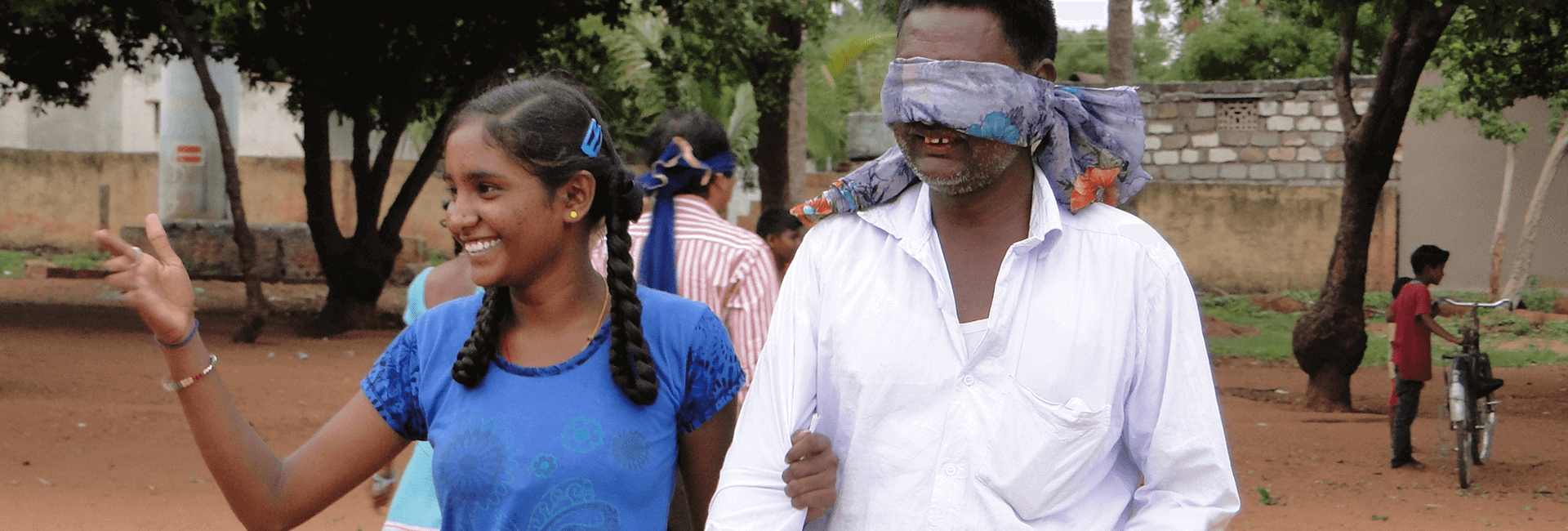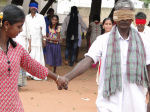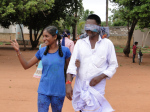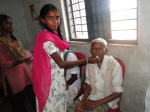

19th Sep, 2017
According to the dictionary, a ‘dialogue’ is a conversation between two or more persons. But it takes a different dimension altogether when the persons involved are a father and his daughter. We all grew up patronizing our fathers, who in some way or the other, have had a strong influence on our personalities, especially the daughters. It’s a proven fact that a father is one of the strongest influences in a woman’s life that enables her to grow up to become a confident and bold individual. She looks up to him for approvals on her emotional and social connections. He is her inner strength. Of course, there is no denial that not all of us have been fortunate enough to be under the canopy of a father’s attention and yet emerge to become strong individuals. Nevertheless, a father plays an important role in etching the personality of his daughter.
For several of us, it’s a routine activity that blends naturally into our day-to-day life, but that’s not the case with a majority of families living in rural areas. There is a visible chasm in the communication between fathers and daughters in most of the villages. A large number of households, especially in the remote villages are lagging behind in terms of advancement in thought and practice when it comes to the aspect of how and why the father should play an important role in a girl’s upbringing and development.
During the several activities that were undertaken as part of the interventions of the Sphoorthi project, this aspect of a father-daughter relationship was studied intensely. It posed as a barricade in allowing the girls to achieve freedom of thought and expression. Through the various programs that were conducted, be it the monthly interactions or the leadership camps, it was inferred that there was a need to bring about a change in the fundamental element of a girl’s life — a healthy relationship between her father and herself.
The letters that the girls wrote to Sphoorthi were also an eye opener into the direct link between a girl’s personality and her relationship with her father. The mother was already an integral part of her personality, while the father’s role was lacking clarity. On probing further into the nuances of the village culture, it was inferred that there was an immediate need to dissolve the indescribable gap created between the fathers and the girls, even if it meant breaking age old taboos and conservative practices. It was also concluded that this task needed careful and sensitive handling, because it was the intricate web of the village culture that was being touched upon.
The Sphoorthi community organizers were given the task of taking this proposal to the RMAGs in the routine village-level interactions. The RMAGs were briefed on the prospects of such an activity and were also convinced on why it was so important. The proposal received unanimous approval from the RMAGs who were excited to bring their relationship with their fathers to a new dimension.
During the preparatory stages of this intervention, it was understood that the methodology had to be a systematic one and that a conscious and concerted effort was needed to even introduce such a culture among the village folk. There was a need to explain what was wrong currently and what needed to be rectified and how.
Since such interactions were highly emotional and private, the choice of the correct venue was important. In most of the villages, the public schools were chosen for conducting the activity. It started off as a casual meeting between a couple of girls and their fathers. The girls sat face to face with their fathers and thus began the activity.



The girls introduced themselves one after the other followed by the introductions of the fathers. Some of the fathers did not know which class their daughter belonged to. What started off as a mechanical activity progressed to become an interactive session. The girls had to describe their fathers in a few words. There were several emotional encounters when the girls introduced their fathers to be their role models and what they expected from their role models. They expressed their concerns and expectations fearlessly. While some of them demanded that their fathers quit smoking and drinking and spend more time with family, the others thanked their fathers for being supportive of the RMAG movement.
Some of the fathers who were reluctant in sharing their thoughts were inspired by their peers in the forum who spoke at length about the visible changes in their daughters and expressed their gratitude to the Sphoorthi project for bringing about this change and in turn transforming their lives. They held their daughters in high esteem and looked extremely contented and happy. In one of the sessions, an elderly man who was speaking for his granddaughter who was also an RMAG, spoke about how the girls in his family outnumbered the boys in terms of excelling in studies and also participating in the affairs of the family business. It was appealing to listen to his story where he saved his grand-daughter from getting married at the age of eleven, when she expressed her disapproval of a promising marriage proposal from a relative. The grandfather proudly proclaimed that girls have equal rights to live their dreams, quoting examples of the girls in his family, who were engineers and management executives.
The next activity that followed, was the most interesting one, wherein the fathers were blindfolded by the girls and led out of the classroom. None of them resented to this and trusted their daughters and followed their instructions. They were lead outside into the school ground and other buildings, at every step being guided by their daughters who wanted to prove how trustworthy they were. This activity was conceived as a light game and was greeted with much delight. At the end, when the folds were untied, the Sphoorthi representatives explained that this was not a simple game but an attempt to prove that just as how they trusted their daughters and followed their instructions blindly, the girls expect hand-holding and guidance at every stage in their life. In the end, it will be equally rewarding for the father and the daughter.
After this game, the daughters handed over a token of gratitude and love to their fathers in the form of a rose flower and a candy. The fathers, in turn, took a vow to stand by their daughters. It was obvious that the fathers were genuinely interested in interacting and spending time with their daughters. They just needed a slight nudge to correct the course of their thoughts and norms prevalent in the villages since ages. They were not deliberately standing away from the family, but it was a mere cultural shift that proved to be rewarding.
This was followed by a light tea and snacks session, which gave the participants more time and opportunity to interact with each other and share their experiences outside and within Sphoorthi. The curiosity among the villagers who were not part of Sphoorthi was also noteworthy. They watched as the girls led the blindfolded men around the school campus. A couple of them inquired about the activity. They too seemed to be impressed with the goals of the project and expressed their willingness in getting their daughters under the RMAG program. The activity ended with a positive note, when the fathers thanked the Sphoorthi representatives for enabling such a session and the girls delivered an excellent note of gratitude, which received a loud round of applause from everyone gathered in the School.
By Sheena Lakshmi